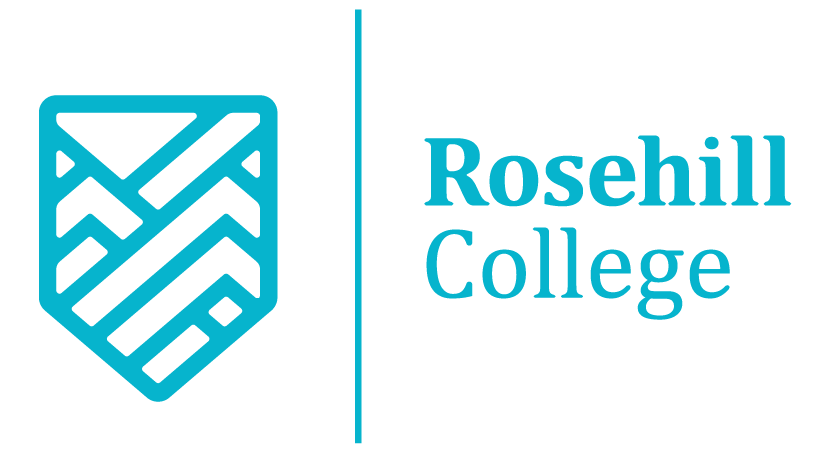CHC52021
Diploma of Community Services
The CHC52021 Diploma of Community Services at Rosehill College equips students with the skills to deliver, manage, and coordinate person-centered services, empowering individuals and communities to achieve greater wellbeing.

Course Overview
The CHC52021 Diploma of Community Services at Rosehill College prepares students for roles in delivering, managing, and coordinating person-centered services to individuals, groups, and communities. This qualification equips students with specialized skills in community services, enabling them to work autonomously under broad directions from senior management. Graduates may support people in making positive changes in their lives, improve personal and social wellbeing, and may also have responsibilities for supervising other workers and volunteers, as well as undertaking case management and program coordination.
Course Sector
- Sector: Vocational Education and Training (VET)
- CRICOS Course Code: 116385C
- Course Level: Diploma
- Course Language: English
- Duration: 104 weeks
Are you a Domestic student or International student?
Entry Requirements
- Age: Must be at least 18 years of age.
- Course Entry Interview: Participation in a course entry interview to assess suitability for the course and student needs.
- English Language Proficiency:
- Must have an IELTS score of 6.0 (test results must be no more than 2 years old) with no band less than 5.5.
- Alternative Evidence:
- Educated for 5 years in an English-speaking country; or
- Successful completion of an English Placement Test at IELTS level 6.0.
- Other accepted tests include PTE and TOEFL, with results confirming equivalence to an IELTS score of 6.0.
- Student Visa Requirements: Must meet the requirements for the Student Visa (Subclass 500), including:
-
- Genuine Temporary Entrant (GTE) Requirement: Demonstrate that you are a genuine student intending to stay in Australia temporarily for study purposes.
- Financial Capacity: Show that you have sufficient funds to cover tuition fees, living expenses, and travel costs.
- Overseas Student Health Cover (OSHC): Maintain health insurance for the duration of your stay in Australia.
- Health Requirements: Meet health standards as specified by the Australian Government.
- Character Requirements: Provide evidence of good character, which may include police certificates.
Entry Requirements
- Age: Must be at least 18 years of age.
- Course Entry Interview: Participation in a course entry interview to assess suitability for the course and student needs.
- Language, Literacy, and Numeracy: Must achieve ACSF Level 5 in reading, writing, numeracy, and oral communication.
Course Details
Core Units
- CHCCCS004: Assess co-existing needs
- CHCCCS007: Develop and implement service programs
- CHCCCS019: Recognise and respond to crisis situations
- CHCCSM013: Facilitate and review case management
- CHCDEV005: Analyse impacts of sociological factors on clients in community work and services
- CHCDFV001: Recognise and respond appropriately to domestic and family violence
- CHCDIV001: Work with diverse people
- CHCDIV002: Promote Aboriginal and/or Torres Strait Islander cultural safety
- CHCLEG003: Manage legal and ethical compliance
- CHCMGT005: Facilitate workplace debriefing and support processes
- CHCPRP003: Reflect on and improve own professional practice
- HLTWHS003: Maintain work health and safety
Elective Units
- CHCPOL003: Research and apply evidence to practice
- BSBPEF401: Manage personal health and wellbeing
- CHCCOM003: Develop workplace communication strategies
- CHCDIV003: Manage and promote diversity
- CHCCDE027: Implement community development strategies
- CHCMHS005: Provide services to people with co-existing mental health and alcohol and other drugs issues
- CHCMGT003: Lead the work team
- CHCPRP001: Develop and maintain networks and collaborative partnerships

Assessment Methods
Knowledge Questions:
Written assessments designed to evaluate students’ understanding of theoretical concepts covered in the course.Projects:
Students are required to complete practical projects that apply the knowledge and skills they have learned to real-world scenarios in community services.Portfolios:
A compilation of evidence, including documents, reports, and reflections, that demonstrates students’ competency in various tasks and units. This portfolio often includes work completed during the workplace training component.Observations:
Practical skills assessments conducted through direct observation of students performing specific tasks in a simulated or real-world environment, typically during their work placement.Workplace Logbook:
Students must maintain a logbook during their work placement, documenting the hours completed and the tasks performed. This logbook must be verified by the workplace supervisor and is used as part of the assessment process.
These assessment methods are designed to ensure that students have a comprehensive understanding of both the theoretical and practical aspects of community services, preparing them for effective roles in the field.
Delivery Mode
Face-to-Face Learning:
Engage in classroom-based sessions with experienced trainers, where students participate in discussions, practical activities, and group work. These sessions provide direct interaction and hands-on learning experiences.Structured Self-Study:
Students are required to complete self-study activities, which include reading, research, and completing assignments independently. This component is designed to reinforce the concepts learned during face-to-face sessions and allows students to progress at their own pace.Workplace Training:
A key component of the course is the completion of 200 hours of work placement in a community services setting. This practical experience allows students to apply their theoretical knowledge in real-world situations, developing the skills necessary for a career in community services.
This blended delivery approach ensures that students receive a well-rounded education, combining theoretical knowledge, independent study, and practical experience to fully prepare them for roles in community services.
Work Component
Practical Experience:
Students are required to complete a minimum of 200 hours of work placement in a community services setting. This hands-on experience is crucial for applying the theoretical knowledge gained in the classroom to real-world situations, ensuring that students develop the practical skills necessary for effective community service work.Supervision and Assessment:
During the work placement, students are supervised by experienced professionals in the field. Their performance is assessed based on their ability to carry out tasks to industry standards, with feedback provided to support their development.Workplace Logbook:
Students must maintain a workplace logbook throughout their placement, documenting the hours completed and the specific tasks and skills demonstrated. This logbook must be verified by the workplace supervisor and is used as part of the assessment process.
The work component is an integral part of the CHC52021 Diploma of Community Services, ensuring that graduates are job-ready and fully equipped to meet the demands of the community services sector.
Pathways
Employment Pathways
Graduates of the CHC52021 Diploma of Community Services are well-prepared for various roles within the community services sector, including:
- Community Services Manager
- Case Manager
- Program Coordinator
- Team Leader in Community Services
- Family Support Worker
These roles involve delivering, managing, and coordinating person-centered services to individuals, groups, and communities, with a focus on improving personal and social wellbeing.
Further Education Pathways
After completing the CHC52021 Diploma of Community Services, students may choose to further their education and enhance their career opportunities by pursuing higher qualifications, such as:
- CHC62015 Advanced Diploma of Community Sector Management
- Bachelor’s degree in Community Services or related fields
- Bachelor’s degree in Social Work
These further education pathways can lead to more advanced roles in community services, including management and leadership positions, as well as specialized areas such as social work and community development.
This qualification provides a solid foundation for those looking to build a long-term career in community services, with clear opportunities for both immediate employment and future study.
Student Growth Stories
Intake Dates
2025
- 13 January 2025
- 24 February 2025
- 14 April 2025
- 26 May 2025
- 14 July 2025
- 25 August 2025
- 13 October 2025
- 24 November 2025
2026
- 12 January 2026
- 23 February 2026
- 13 April 2026
- 25 May 2026
- 13 July 2026
- 24 August 2026
- 12 October 2026
- 23 November 2026
2027
- 11 January 2027
- 22 February 2027
- 12 April 2027
- 24 May 2027
- 12 July 2027
- 23 August 2027
- 11 October 2027
- 22 November 2027
Apply in 3 easy steps
Prepare
Read through the admissions criteria and ensure you meet the entry requirements.
Apply
Apply online or contact us to assist with your application
Offer
We’ll contact you to confirm the details and help you through the rest of the process.


